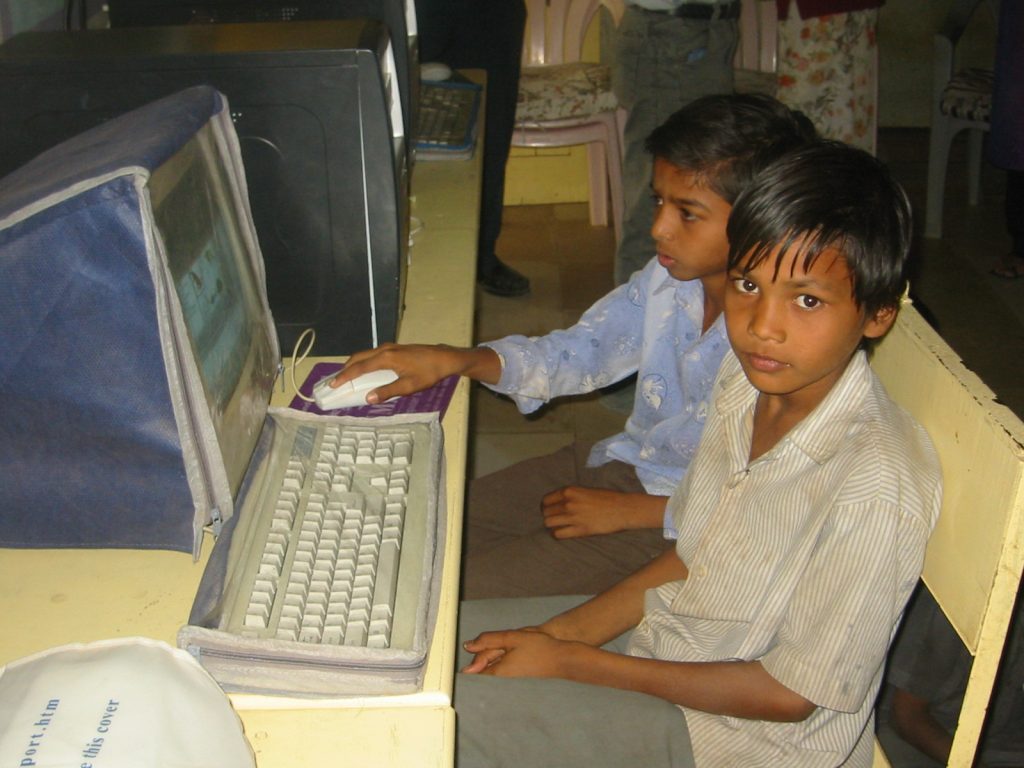Children these days are exposed to anything and everything online. Children not only use the internet to attend online classes and access educational content, they also perform activities like watching reels, cartoons and OTT content, online shopping, playing games online and even perform monetary transactions using their parents details.
As a result of which, they have also become easy targets for cybercrime. Be it cyberbullying, sexting, accessing personal information, identity theft, sharing virus or malware children are the prime targets of online predators.
Excess web exposure impacts creativity and imagination
Sharing his opinion on the same, Professor of Sociology Dr. Pinaki Roy told The CSR Journal, “Children today are exposed to a plethora of information through computers and smartphones. Parental control over what children are exposed to is much needed as it has implications for what kind of a human being they would become. While children today are smarter in that they assimilate and synthesis diverse information, rampant exposure to the web world has multiple risks. It not only endangers children psychologically, it significantly lessens creativity and imagination.
If processing and reproducing diverse information is a key marker of intelligence and future prospects of children these days, of course via exposure to social media platforms like YouTube, Facebook, Instagram, other learning apps, then we are probably going to witness an epoch where children would cease to paint and write poetry, listen to music, appreciate novels and films, becoming wretched replicas of their standardized others – dull, hollow and unappealing.”
Even a 2-year-old has access to smartphone
Kolkata-based school teacher Madhuchhanda Bhattacharya speaks on similar lines while discussing the need to monitor children’s online behaviour. She said, “It’s a common thing these days that children have access to gadgets like smartphone and tablets. I have seen kids as little as 2.5 years accessing the same, who do not even know how to read or write. A lot of children these days are addicted to the screen and to the internet. The addiction is so much that if denied access to the phone, the child becomes stubborn, starts crying and throwing tantrums. Some kids even refuse to eat food if they are not given a mobile phone during the meal. It is a major responsibility of the parent to limit their child’s screen time in the first place.”
Internet addiction makes child lazy, stubborn
“Mobile phone addiction and easy access to Google search make the child lazy. Even 20 years ago children used to multiply 17*17 mentally or learn tables but today’s kids just Google the answer. They are getting readymade essays and letters online so they are not learning how to think and write a paragraph or construct a sentence or do calculations mentally. Talking about reels, the child is learning rude behaviour and abusive language by watching these, which is getting reflected in their behaviour. This is because the child cannot differentiate between what is right and what is wrong,” Ms Bhattacharya added.

Why parents are also at fault
Hence, parents should monitor what content the child is watching online. Even if a child is accessing notes or homework given from school online, this also should be done in the presence of any of the parents or any other family members and strictly not alone. Some parents are also at fault because they try to keep the child occupied by giving access to smartphones and tablets. Following which, the child opens various kinds of websites or apps often unknowingly, which are not meant for them,” she further said.
Kids fall prey to cyberbullying and pornography
“Kids these days are way more tech-savvy and overexposed to the online world. Moreover, with Covid-19, academics had to be shifted from school classrooms to mobile phone or laptop screens. As a mother of a 3-year-old, I think the onus is on us to monitor our children’s online activities. More often than not, children fall prey to cyberbullying and get addicted to pornography and malicious video games, which pose a threat to their cognitive development and behaviour.
However, through proper monitoring, we as parents can channel their online activities to something that’s creative, educative and transformative,” expressed Sreeparna Dutta, mother of a 3-year-old daughter.
Internet access never when child is alone
Mumbai based Sanju Sharma, who has a teenager son and a 12-year-old daughter feels children should access the internet, for whatever reason it maybe, only in the presence of parents so that they are aware of what the child is accessing online.
Sanju said, “In today’s internet era, everyone is influenced by it and children use it the most. In such a situation, it is the responsibility of every parent to monitor what children are doing on the internet. Nowadays, internet has become a major medium of imparting education and source of acquiring knowledge apart from books even in schools.”

“Children access e-books and notes from the web and attend virtual classes. Hence it is not advisable to keep children away from the internet but it is definitely the job of the parents to keep the child’s online activities under control. Parents should know what the child is watching on the internet, which games they are playing and if the content is having any effect on his/her behaviour and personality. It must be ensured that the child does not use the internet alone but in the presence of family members at home,” she added.
Content with emotional arousal harmful
Clinical Psychologist Kirti Shah, who is the Director at Little Pods, a Mumbai-based organisation for Children and Adults with Special Needs feels access to content which are not meant for children negatively affects their personality development.
Kirti said, “I feel these days online or on social media or the OTT content available, there is so much of emotional arousal in those content in terms of also the amount of negativity or the different personalities that they are showing to grab the audience’s attention. Certain things are shown with a great deal of effects especially to attract attention of children and minors. In the process, it becomes really difficult for parents to understand which character or which part of the digital exposure that the child is getting is influencing or motivating his or her personality.

Web exposure affects personality development
Pre-adulthood is an age when the personality is formed. A lot of factors influence this process including individuals that we see around us. If that tender age, if the child or teenager is exposed to content which is not meant for this age, then that certainly affects the personality development process. I feel prevention is always better than cure and it is the parents’ responsibility to check that there is no initial damage done at all. Hence, monitoring their kid’s online activities is necessary for every parent.”
Ahana Bhattacharya can be reached at ahana@thecsrjournal.in


